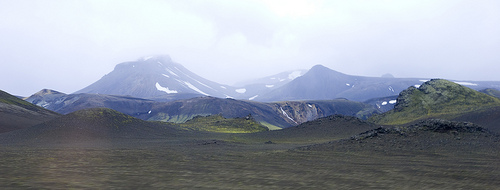For years now, Iceland has been rated as one of the best places to live in terms of health, happiness and overall satisfaction. The country’s rich culture, social welfare system, natural beauty and close proximity to other places in Europe have attracted many expats in the last few years. If you are thinking about a new destination to move to, this may just be the right place for you.We asked Iceland photographer Umit Koseoglu why he thinks there has been such a rise in the number of people visiting and living in Iceland over the past few years.
“I think people are starting to realise that Iceland’s not this really barren, isolated place. It’s actually surprisingly easy to get to and very tourist-friendly, but still has a sense of being a bit unusual and exotic. You can get a bus to see a waterfall, so it’s a good compromise between convenience and adventure. The landscape is otherworldly; even the view from the airport bus going to Reykjavík is stunning.”
If you’re planning a move to Iceland but are still undecided, here are seven reasons why Iceland is a great place to live out your next expat adventure.
Life Expectancy
In terms of health, the country does exceptionally well – Icelanders have a life expectancy of 82 years (84 for women and 81 for men), which is around 2 years more than the Organization of Economic Cooperation and Development (OECD) average. The levels of pollution in this country are much lower than the OECD average. More than 97% of the residents claim that they are happy with the quality of water, which is higher than the OECD average of 84%. People moving from other countries often find the air and water much cleaner than they are used to.
Welfare System
Like most of the other Scandinavian countries, Iceland has a modern welfare system, where all residents reap the benefits of complementary healthcare, free education, and a guaranteed pension. The standard of living in this country is as high as the Western European nations. Taxes of course are high, to support this system – depending upon their salary levels, residents pay anywhere between 37% and 46% in income tax. However, the average earnings in Iceland are also quite high.
Education
The Icelanders regard themselves as a highly literate nation. The education system in Iceland is ranked the 5th in the world. Like in the other Nordic countries, education is compulsory for children between the ages of six and sixteen.
The public schools in the country are fairly good, not just for locals but also for foreigners. In fact, there are only a few private schools in the Icelandic education system, and almost all private institutions get public funding.
Climate
Contrary to the common belief (and the country’s name) the weather in Iceland is rather mild because of the Gulf Stream. The North Atlantic Current usually brings in higher annual temperatures than most other countries that are at the same latitude. The average summer temperature in Iceland’s capital, Reykjavik, is 24.7ᵒ C while the average winter temperature is around 0ᵒ C.
Umit agrees: “When people think of Iceland they tend to imagine Arctic conditions, but the climate is actually pretty mild. It’s not the warmest place in the world, and in the winter there isn’t much light, but I’ve been 7 times and only seen snow once!”
During the summers, the nights remain bright across the country. In fact, the sun almost never sets completely in the month of June.
Business Culture
Most professionals from other countries who have worked in Iceland believe that Icelandic companies are more streamlined than what they are used to. Extensive hierarchal structures, which are common across Europe and the US, aren’t followed in Iceland to the same degree.
When it comes to working styles, Icelandic professionals tend to be very direct and honest. Business meetings are concise, and often take place over coffee, lunch, a drink or dinner.
Low Crime Rate
Statistics show that the crime rate in Iceland is quite low, even taking into account the small population. Residents often leave their babies unattended outside restaurants so that they can enjoy a quiet meal, a tradition which may seem strange to outsiders.
It is rare to see any kind of violence in Iceland, even in the bigger cities. Police officers across the country do not carry firearms.
Interestingly, Icelandic law puts its offenders into rehabilitation instead of locking them up in prison. This gives the “prisoner” a chance to either work (paid) or attend school. Treating criminals with a degree of humanity encourages them to change and develop into better people.
Gender Equality and Tolerance
According to the World Economic Forum’s Global Gender Gap, Iceland is ranked the highest in terms of gender equality. The country ranks among the highest in terms of women’s participation in the labor market. Women constitute around 47.7% of the total Icelandic labor force.
It is also very common for mothers to raise their children on their own, without raising any eyebrows. A significant number of babies are born out of wedlock in this country. In fact, Iceland has had a long tradition of single mothers throughout history.
Same sex marriages are also legal in this country, and people are quite accepting of them.
Those are some of the top reasons why you might want to consider a move to Iceland. Have you lived there, or are you there now? What is your favourite part of being in Iceland? Let us know in the comments.

